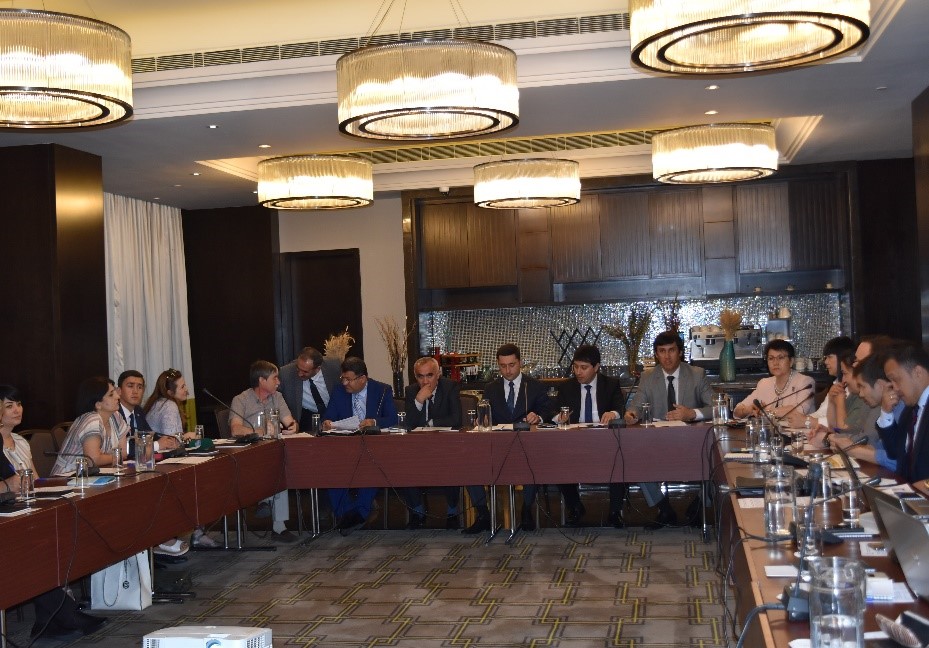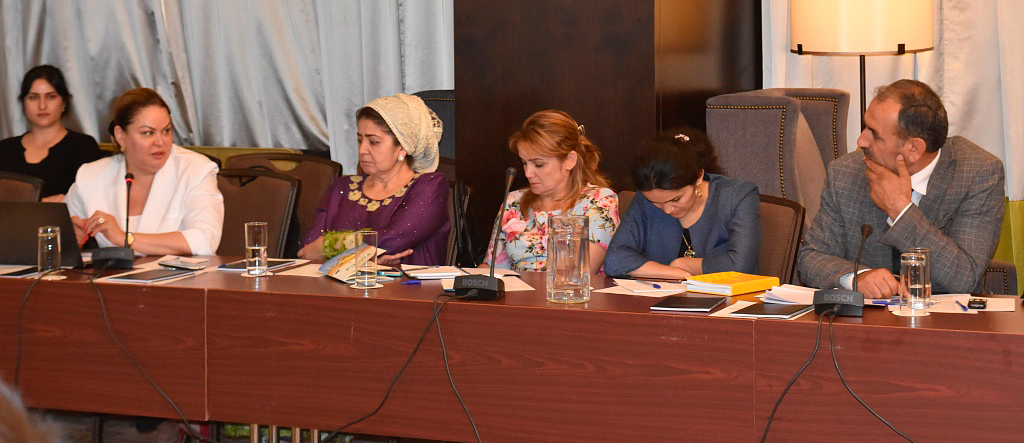
On June 20, 2019, the CAREC Open Day was held in Dushanbe, Tajikistan. The event was organized to promote opportunities for cooperation and partnership with national partners, international development partners and civil society in the field of environmental protection and sustainable development in the Central Asian region, as well as to highlight the results of CAREC activities in Tajikistan on fighting climate change, effective water management and environmental protection to achieve the SDGs.
During the Open Day, national partners from the Committee for environmental protection under the Government of the Republic of Tajikistan, representatives of the Ministry of energy and water resources of the Republic of Tajikistan and the Agency for Hydrometeorology made a welcoming speech and spoke about the implementation of a number of joint projects with CAREC.
The national partners noted that the CAREC Branch in Tajikistan is one of the first CAREC country offices which launched its activities in 2002. The branch provides assistance to Tajikistan in addressing environmental and sustainable development issues. For the last 17 years, the Tajik CAREC Branch has been working closely with the government of Tajikistan on issues like improving environmental education and increasing the awareness of climate change causes.

In 2018, the Tajik CAREC Branch held a series of successful negotiations with the UNECE representatives and contributed to the implementation of the UNECE project on Promotion of ratification of the Espoo Convention and its Protocol on Strategic Environmental Assessment by Tajikistan. Specialists of the Committee for environmental protection have participated in a number of seminars by international experts, followed by preparation of recommendations on the modernization of national legislation.
Head of the Department of International Affairs of the Committee for environmental protection Mr. Muzafar Salimov noted in his welcoming speech: “The Committee for environmental protection under the Government of the Republic of Tajikistan welcomes all efforts of CAREC to improve the environmental situation, as for many years of work in the region, this organization has met all expectations and demonstrated good results through the projects and achievements in the Central Asian region. Tajikistan is ready to continue to take an active part in the promotion of new initiatives and ongoing regional and international events aimed at improving the environment and rational use of natural resources."
The representative of the Ministry of energy and water resources Mr. Rustam Abdullaev told about the implementation of a number of projects with CAREC with the aim of building capacity of water sector specialists, strengthening the scientific and technical base, improving water cooperation, and especially highlighted the productive collaboration of the Ministry with CAREC in promoting global water initiatives of the country, including the International Decade for Action: Water for sustainable development (2018-2028).
The Executive Director of CAREC Mr. Zafar Makhmudov in his presentation shared CAREC’s future cooperation prospects. In particular, he highlighted the importance of developing a new updated Development strategy of CAREC until 2025, while taking into consideration the priorities of all five countries of the region.
CAREC program managers also presented the main results of the ongoing projects and the plans for implementation of the new ones. With a genuine interest, participants watched the documentary film describing the impact of climate change on the countries of the region. Participants then proposed to translate the film into the national languages of five Central Asian countries. Irina Bekmirzayeva, Manager of the Program on Adaptation to Climate Change and Mitigation in the Aral Sea Basin (CAMP4ASB) gave an overview of the status and progress of the project and shared plans for the future.
At the end of the event, the participants exchanged views on the ways to support joint efforts of governments, international organizations and the civil society towards better environmental cooperation.
